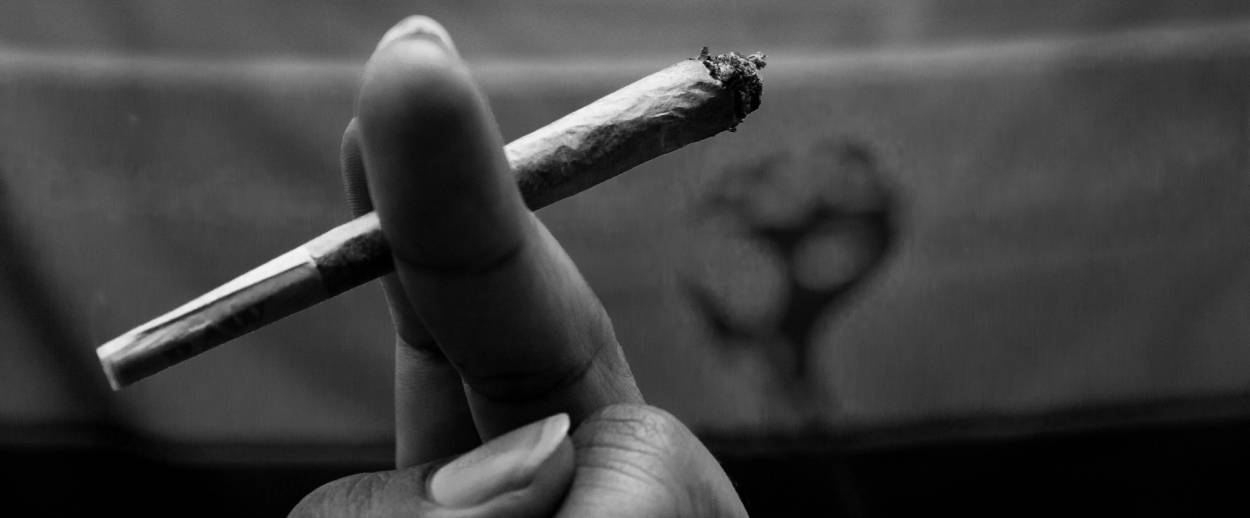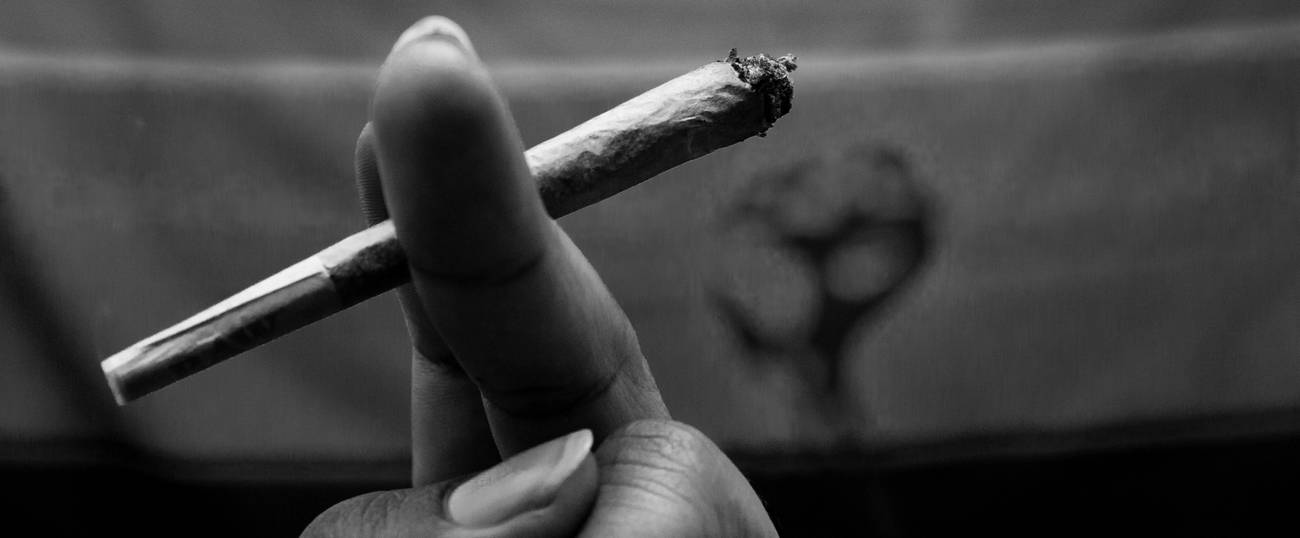Boreh Pri Ha’Ganja: What’s the Proper Blessing to Say Over Weed?
We asked three rabbis and got seven different opinions




This summer we’re bringing you daily posts from our sister site, Jewcy.com, edited by Gabriela Geselowitz. You can find more from Jewcy here.
In Judaism, blessings are said during certain moments to sanctify an act, like performing a religious ritual, or having a meal. There’s the famous recurring bit from Fiddler on the Roof that insists, “There is a blessing for everything.”
So, is there a bracha for getting stoned?
Marijuana in public life is changing, from social acceptability to legal permissibility. Scientists are looking to separate fact and fiction, and a greater understanding of the effects of the drug will soon be more clear. Rabbis are starting to condone the practice, or at least not actively condemn it (queue the video of the Israeli rabbis checking the herb to confirm it’s kosher-for-Passover). Anything that plays a role in day-to-day life of Jews merits Talmudic-like debates. So if it’s a safe and accepted practice for an observant Jewish person, what blessing should one make before blazing it?
Nothing, according to Rabbi Menachem Posner, a member of Chabad.org and Ask the Rabbi (“the oldest online ask-the-rabbi service”). He emphasizes that this discussion is only relevant in cases where the substance is legal, healthy, and halachically permissible, but even after all of that, you still don’t say anything.
“The Torah scholars of every generation apply the truths of the Torah and Talmud to their circumstances, in their generation,” says Posner. “So when tobacco and chocolate made their appearance, the rabbis determined that the appropriate blessings over each. The blessing of shehakol [a general food blessing] over chocolate, even though it comes from a bean, and no blessing at all over cigarettes.”
But what about one of the multiple Jewish blessings over fragrances? Posner implies that marijuana’s smell would not be the reason you’re smoking it.
“The key is that it is not the aroma itself that is being enjoyed,” he says. “Rather, it is the resulting sensation achieved.”
If you are taking the drug as prescribed by a doctor, says Posner, the Hebrew prayer (which is different than a formal blessing) is “Yehi ratzon sheyihye li lirefuah,” or, “May it be Your Will that this lead to my healing.” Edibles, naturally, would require the particular blessing as determined by the type of food.
On the other hand, Arthur Kurzweil, the Jewish scholar and educator, takes a more holistic approach to prayer and weed.
“You should seed your day with moments of consciousness,” he says. “The moments where you do something, you want to express gratitude to the Almighty, then do it.”
Kurzweil warns against the “magical thinking” that the precise words will please HaShem (“That’s a kindergarten God”), but he has a few recommendations for those who want to savor any instant that makes your mind feel good, and “fluid.”
There’s Shehakol, traditionally applied to food, but broad enough language that literally encompasses “everything.” Or there’s Shehechiyanu, used for special occasions and first-times, but Kurzweil advocates using it liberally.
“You feel good? God’s not going to mind you saying, ‘Thank you, God, for keeping me alive and allowing me to reach this moment! This is so nice,’ says Kurzweil. “The times I have experienced marijuana are the times I can look on and say, ‘Thank you, God.’”
Like Posner, Kurzweil emphasizes the importance of “Dina d’malchuta dina” (obeying the law of the land), and only using marijuana if it’s healthy for you and you’re not dependent on the substance. Kurzweil also notes that the Baal Shem Tov (the founder of Hasidism) smoked a pipe as a meditation device.
Weighing in somewhere in the middle of this strictness spectrum (three Jews; something like seven opinions) is Matt Carl, a Conservative rabbi from Brooklyn:
“So, one thing I love about brachot are they force us to take the time both to observe or investigate the stuff we consume (what exactly it is, where it comes from, how it grows), and how we consume it. In the case of marijuana, first off, whether we call it weed or grass or herb might have an effect on how we think of it agriculturally.”
Carl says this half-joking debate has long-run amongst certain colleagues. One recites the prayer for smelling herbal grasses, which ends “boray isvay vesamim.” Or would it be the one for smelling spices we use at the conclusion of Shabbat? (Coincidentally, the word from both those prayers, “Samim,” is also the modern Hebrew word for “drugs.”) Or what about the prayer for fragrant fruits, since that refers directly to smell?
Ultimately, Carl personally aligns more closely with Posner.
“It is the way the material is consumed that matters,” Carl says. “It is likely that one needn’t say a blessing upon smoking something, only upon smelling or eating it. For this reason, we should follow the important rabbinic dictum s’fek bracha l’hakel: if there is doubt about saying a blessing, do not say it.”
Carl adds that he and his colleagues have a joke:
“If the weed is good enough, you should probably say t’filat haDerech.”
T’filat haDerech is the prayer you say when you’re traveling. As in, “Have a safe trip!”
Email Address
Gabriela Geselowitz is a writer and the former editor of Jewcy.com.